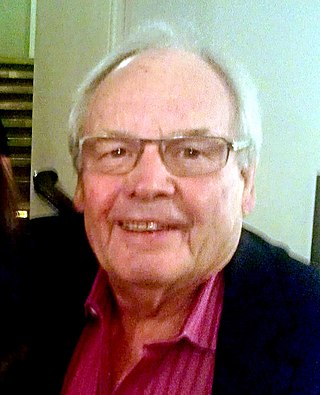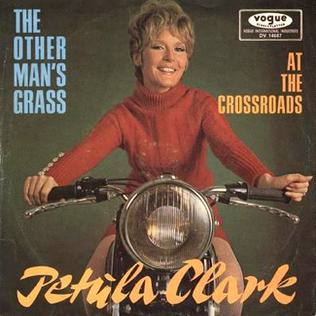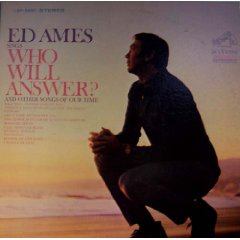See also
- The Grass Is Always Greener (disambiguation)
- The Other Man's Grass Is Always Greener (album), 1968 album by Petula Clark
- "The Other Man's Grass Is Always Greener", 1967 single by Petula Clark
The Grass Is Greener is a 1960 film starring Cary Grant.
The Grass Is Greener may also refer to:

Petula Sally Olwen Clark, CBE is a British singer, actress, and songwriter. She has had one of the longest careers of any British singer, spanning more than seven decades.

"Downtown" is a song written and produced by Tony Hatch. The 1964 version recorded by Petula Clark became an international hit, reaching number one on the Billboard Hot 100 and number two on the UK Singles Chart. Hatch received the 1981 Ivor Novello award for Best Song Musically and Lyrically.
Goodbye, Mr. Chips is a 1969 British musical film directed by Herbert Ross. The screenplay by Terence Rattigan is based on James Hilton's 1934 novella Goodbye, Mr. Chips, which was first adapted for the screen in 1939.

Anthony Peter Hatch is an English composer for musical theatre and television. He is also a songwriter, pianist, arranger and producer.
Music is an art form consisting of sound and silence, expressed through time.
Sign of the Times, A Sign of the Times, or Signs of the Times may refer to:
The Green Man is an architectural image of a foliate head.
"Black Coffee" is a song with music by Sonny Burke and words by Paul Francis Webster. The song was published in 1948.

"My Love" is a 1965 single release by Petula Clark which, in early 1966, became an international hit, reaching No. 1 in the US: the track continued Clark's collaboration with songwriter and record producer Tony Hatch.
Downtown is the central business district of a city.

"Colour My World" is a song written by Tony Hatch and Jackie Trent, and recorded by Petula Clark in 1966.

"I Could Have Danced All Night" is a song from the musical My Fair Lady, with music written by Frederick Loewe and lyrics by Alan Jay Lerner, published in 1956. The song is sung by the musical's heroine, Eliza Doolittle, expressing her exhilaration and excitement after an impromptu dance with her tutor, Henry Higgins - in the small hours of the morning. In a counterpoint during the second of 3 rounds, two maids and the housekeeper, Mrs. Pearce, urge Eliza to go to bed, but she ignores them.

"The Other Man's Grass Is Always Greener" is a song written by Tony Hatch and Jackie Trent which was a 1967-68 hit for Petula Clark.

Who Will Answer? is an album by pop vocalist Ed Ames, featuring two original songs and nine cover versions of popular hits from the 1960s. The album peaked at #13 on the Billboard charts in the spring of 1968 and was certified gold by the RIAA.

Then & Now: The Very Best of Petula Clark is a compilation album by British singer Petula Clark that was released on 16 June 2008. It's a collection of greatest hits, four newly recorded tracks, and a previously unreleased recording.

The Other Man's Grass Is Always Greener is the ninth album released by Petula Clark in the United States. It entered the Billboard 200 on February 17, 1968 and remained on the charts for 23 weeks, peaking at #93. It fared better in the United Kingdom, where it reached #37.
The Grass Is Always Greener is an album by Barbara Morgenstern.

"Kiss Me Goodbye" is a Les Reed/ Barry Mason composition recorded in 1968 by Petula Clark.

Petula is a 1968 Pye Records album release by Petula Clark leased to Warner Bros. in the USA.
Amanda-Jane Manning is an English actress, singer and recording artist. She is best known for her appearances in various musical theatre shows in the West End, Germany, across Europe and the United States. She also appears as a solo artist on Petula Clark's Album In Her Own Write singing "My Love Will Never Die" for Sepia Records in 2007.